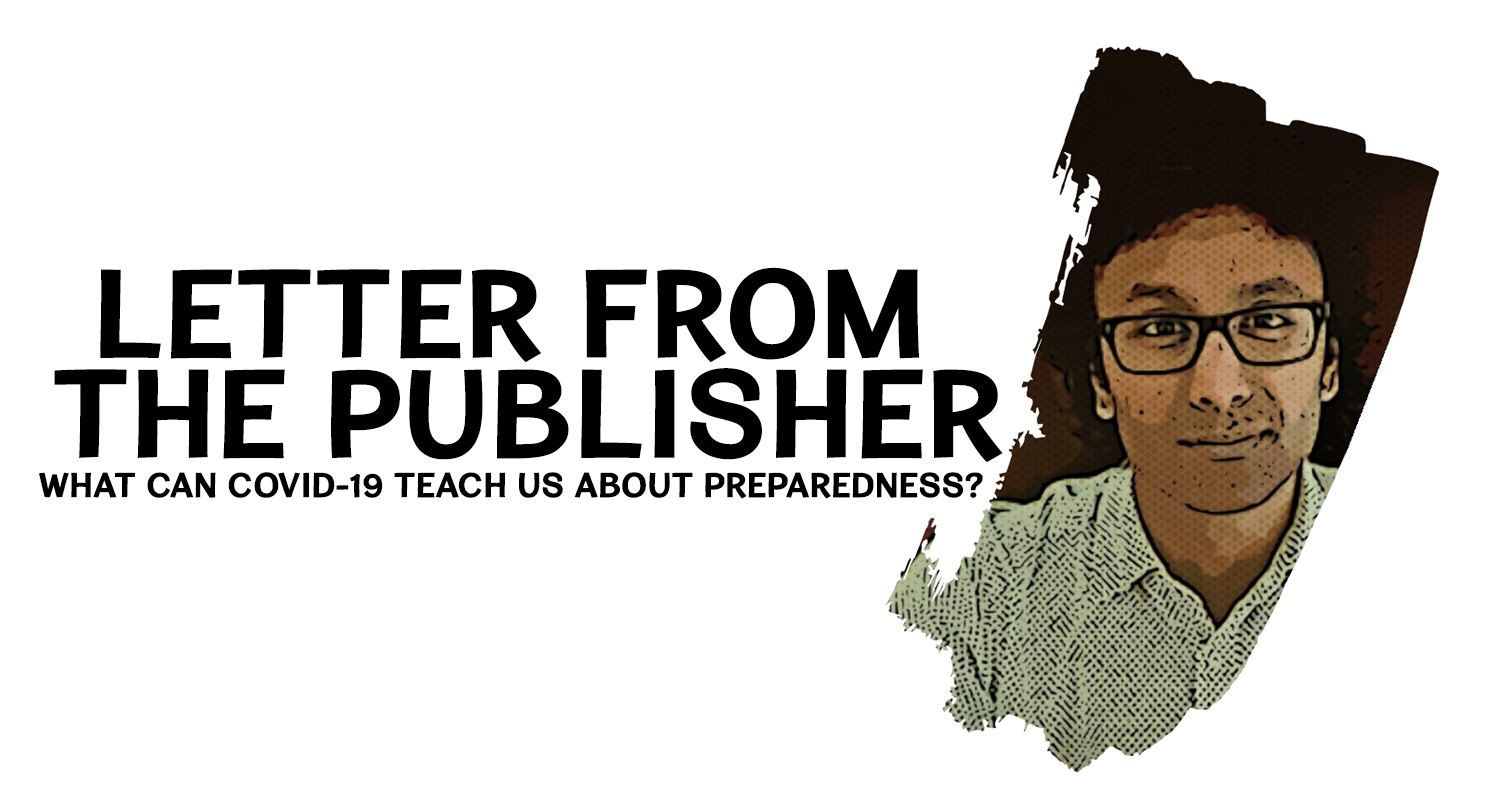Letter from the publisher: What can COVID-19 teach us about preparedness?

On the heels of the growing number of cases of COVID-19 virus across Canada, I attended a gathering called Transition Places and Pathways in Waterloo. Approximately 50 artists, activists, students, entrepreneurs, funders, and professionals from across the world of social impact gathered to discuss the initiation of collective coordinated actions to address the climate emergency.
Frankly, I don’t know why it took so long for the social impact world to convene such a gathering. I learned and unlearned a ton, and given how we’re seeing COVID-19 play out in communities across Canada, there are very real parallels. A couple of questions from my time in Waterloo that I’m holding are: Are we prepared enough? What can we learn from our preparedness to COVID-19 that can help us with the climate emergency?
In the last week, organizations have issued travel bans for their employees, conferences have been cancelled or rescheduled, and communities have seen tourism numbers fall. And then there are the resulting social impacts of racism, self-isolation, school closures, lack of work, and financial loss. Each of these will have further spillover effects over time.
The Public Health Agency of Canada says we should be following some fairly basic, but important precautions such as washing our hands and staying home from work if we’re sick. They also encourage everyone to have a small stockpile of non-perishables and medicines on hand just in case there are local quarantines and we’re forced to stay home for several days. It’s all wonderful advice. Unfortunately many people, particularly vulnerable people, don’t have the option of easily following some of these guidelines —the obvious examples being staying home if we feel sick or stockpiling food.
There are the resulting social impacts of racism, self-isolation, school closures, lack of work, and financial loss.
We’re at a pivotal moment in the response to COVID-19 and it’s about time we think broadly about societal emergency preparedness in our own organizations.
Climate change is an emergency.
The Government of Canada formally declared climate change to be an emergency in June of 2019. 501 city and town councils across Canada have made climate emergency declarations — from Mahone Bay, Nova Scotia, population 1,036 to Toronto, Canada’s largest city. These Canadian communities join 1,432 jurisdictions around the world that cover over 820 million citizens.
The thing is, these climate emergency declarations don’t just concern organizations that have an environmental mandate. These declarations concern all of us, individually and collectively, regardless of our mission. Like COVID-19, climate change is already having social and economic effects — from violence against women and alcoholism to mental illness and job loss.
Are we going to pretend we didn’t see the effects coming?
I vividly remember the dot com bubble crash around 2001. I remember it because I was in university at that time and my parents said that they lost a lot of their savings. They didn’t see it coming, and neither did tens of thousands of other Canadian families. But they learned from it. They shifted their outlook on how they saw the future. They prepared and they adapted. When the 2008 financial crisis struck, they lost a bit of money, they didn’t lose their savings like they did in 2001, and some portfolios became stronger.
By and large, social impact organizations are getting better at preparing for financial shocks and shifts. We know that financial diligence is important. We aim to diversify our funding sources and our investments. Many put finance committees in place at the board level whose function includes the implementation and oversight of safeguards to protect the organization’s assets.
All of this begs a question: Should the climate emergency declarations our city and town councils made be adopted by our organizations, our boards, and our programs?
The pressure is on.
Vinod Rajasekaran, Publisher & CEO
Our team is working around the clock to deliver insightful stories, analysis, and commentary on the effects of COVID-19 on the social impact world. If you like our content, please consider becoming a member. Start a 14-day free trial now.
